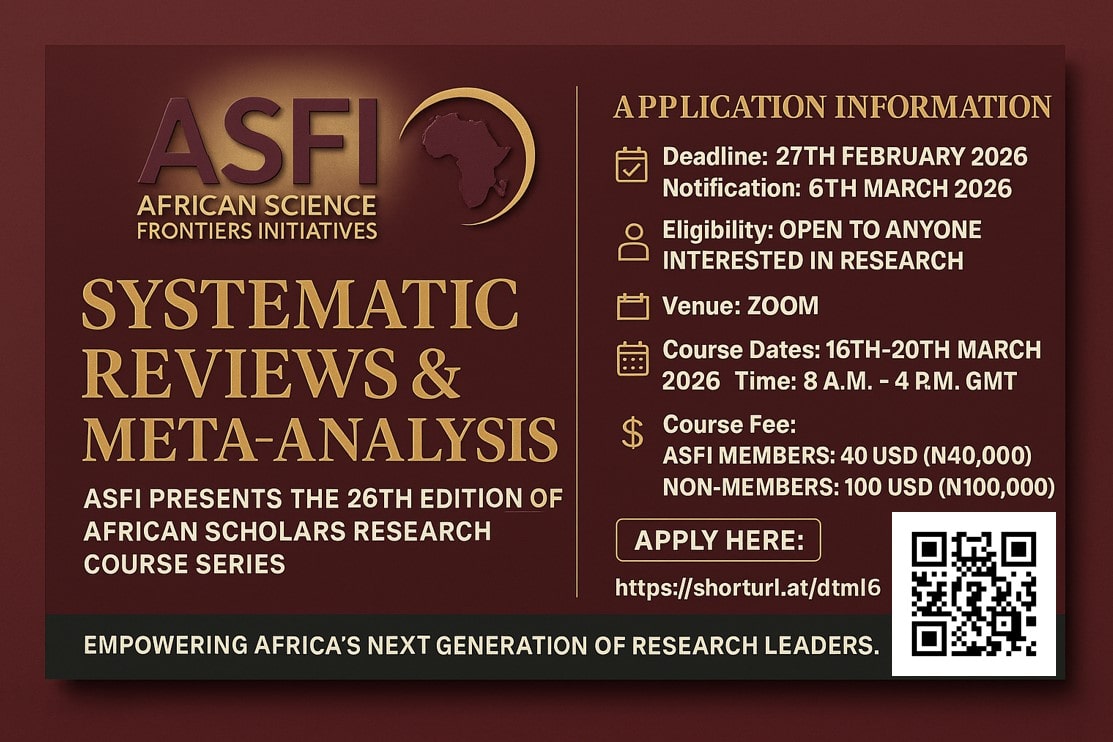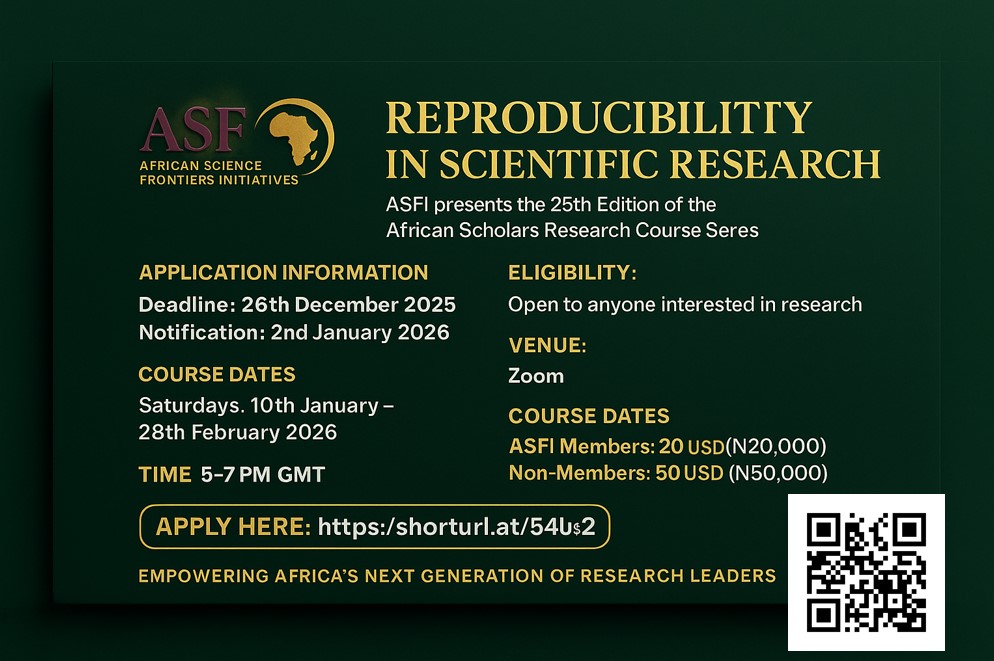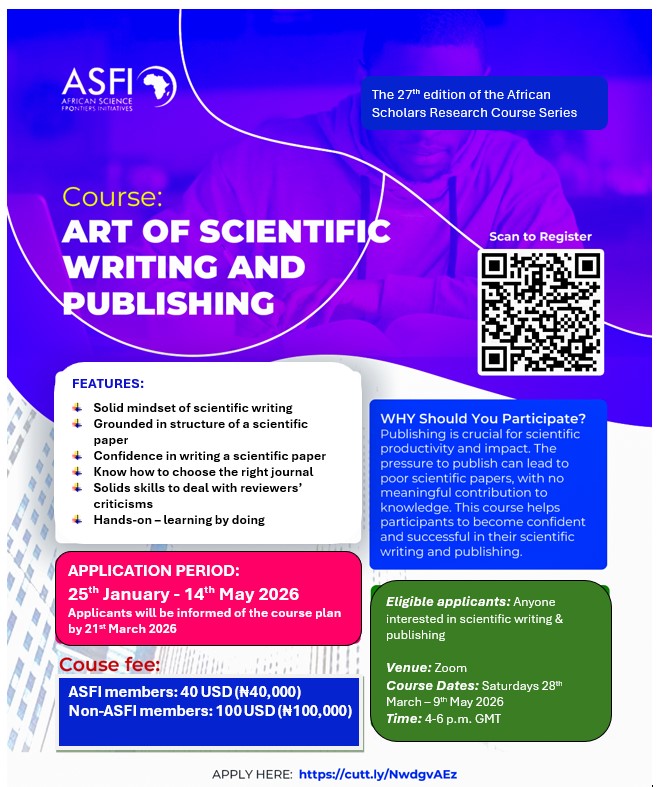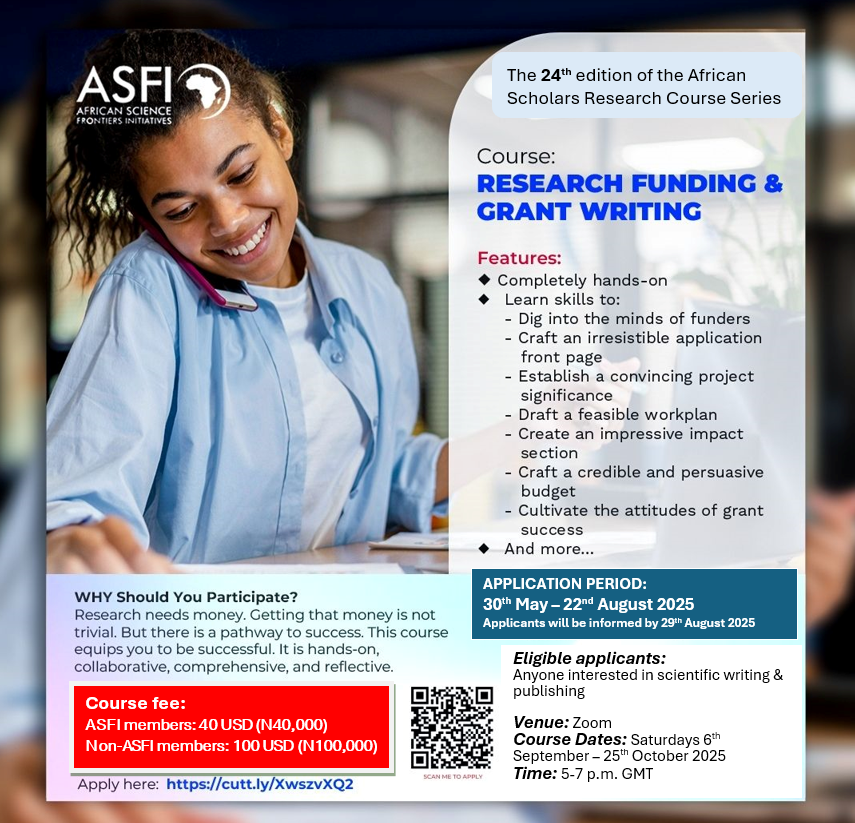Art of science leadership
- Courses
- Art of science leadership

Course description
John C. Maxwell is right when he stated: “everything rises and falls on leadership”. At no time in human history is this statement more paramount than now. The quality of our everyday lives depend on the leadership we find ourselves. As the world scrambles for solution to various challenges plaguing it, all pointers are towards leadership. As several challenges – health, development, social – continue to plague humanity, all attention is on science and research.
Every nation’s development hinges greatly on its scientific strides. Clean drinking water, sufficient and quality foods to eat, medicines to cure diseases, good roads to travel on, electricity to lighting the society, just to name a few, all depend on science. Failure in science therefore leads to failure in societal development. But diversified society comes up with its benefits and downsides, thereby putting science and research on a crossroads. The quality of science leadership can prove a crucial part of the puzzle to help navigate all these societal challenges to a positive direction.
However, rarely are scientists, researchers, and principal investigators trained in the art of leadership. At best, many scientists have thought leadership to not be part of their main or part of their calling. The consequence of this perspective is that expected growth in scientific research does not happen at the pace and breadth as expected. The call for active training of scientists and researchers in the art of leadership has become louder nowadays than during anytime in human history.
The aim of this course is to train scientists and researchers in the art of science leadership. The course provides an overview of various standing leadership theories and principles; establishes the role of leadership in the scientific enterprise; explicates on personal leadership as a foundation for any successful leadership role in science; guides participants through development of the qualities required to lead others, build and maintain a thriving and dynamic research teams, with authentic team cultures; and finally, demonstrates the strategies to successfully transition from academia to industry.
Tutoring is participatory, with hands-on practical sessions that allow participants to implement the skills learned. The course is suitable for postgraduate students, junior and senior researchers and principal investigators from any field of research.
Brief content:
- Day 1: Introduction and context
- Day 2: Personal leadership development
- Day 3: Leading others
- Day 4: Research beyond academia: making transition to industry
- Day 5: Group presentations and conclusions
Target Groups:
Duration:
THIS COURSE IS NOT CURRENTLY ACCEPTING APPLICATION
Search
Other Courses
Upcoming Events
Subscribe Us
upcoming events.






